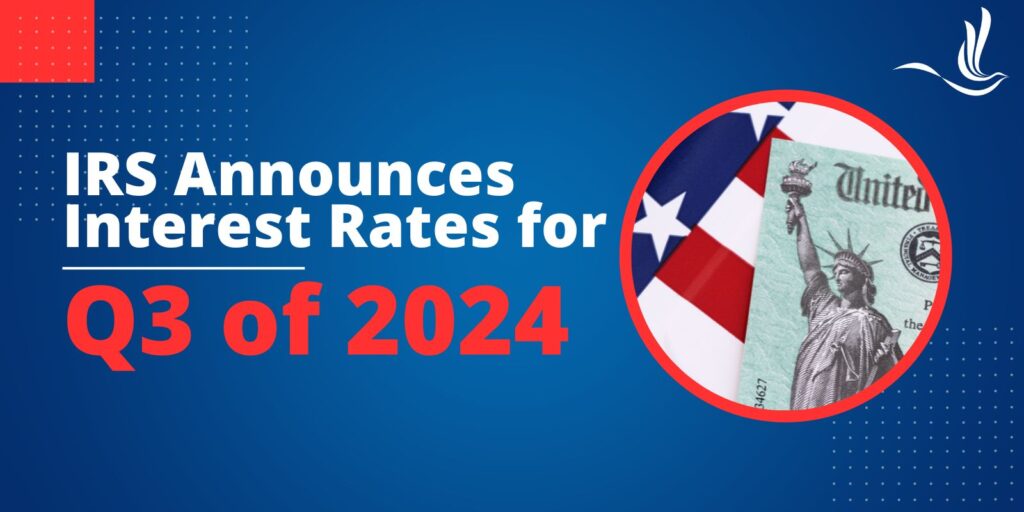The IRS has announced that interest rates for the third quarter of 2024 will remain consistent with the previous quarter. This decision comes amidst ongoing economic evaluations and reflects the IRS’s commitment to stability in the financial landscape. Here’s an overview of the IRS interest rates for Q3 of 2024.
What Are the 2024 Q3 Interest Rates?
The IRS has confirmed that the interest rates for Q3, beginning on July 1 of 2024, will be as follows:
- 8% for overpayments (7% for corporations)
- 8% for the underpayment of taxes
- 5.5% for the portion of a corporate overpayment exceeding $10,000
- 10% for large corporate underpayments
Overpayments are payments made that exceed the amount owed. Underpayments are taxes that are owed but not paid in full. These rates are based on the federal short-term rate determined during the second month preceding the beginning of the quarter. The IRS regularly reviews and adjusts these rates to align with economic conditions, ensuring fairness and consistency in tax administration.
How Do Underpayments Affect My Taxes?
Since the rates have not changed, it’s still an expensive time to owe the IRS. Underpayment interest rates play a crucial role in determining the financial consequences of not paying taxes on time. This also applies if you underpay taxes owed to the government. If you fail to pay the full amount you owe by the due date, you’ll be subject to underpayment penalties. You may also owe interest charges at the above rates. This interest accrues daily from the original due date of the tax return. It will continue to accrue until the date the full payment is made. Underpayment interest rates can significantly impact your overall tax liability. This is especially true if the amount owed is substantial or if payment is delayed for an extended period. Over time, interest charges can add up, resulting in a larger total payment.
How Do Overpayments Affect My Taxes?
Overpayment interest rates influence the financial outcomes when taxpayers overpay their taxes to the government. When you overpay the required amount of taxes owed, you’re entitled to receive interest payments on the excess amount. However, this is only if the IRS is late to send your tax refund. The IRS has 45 days to issue your refund. If they fail to issue it by this timeframe, they will owe interest. Also, like underpayment interest, the interest calculation for overpayments is straightforward. It is calculated by multiplying the amount of overpayment by the daily interest rate. Remember, it’s calculated for each day the excess amount is held by the government.
Tax Help for Those Who Owe
Taxpayers and businesses are encouraged to stay informed about IRS updates and announcements. By staying abreast of these developments, individuals can effectively plan and navigate their tax responsibilities in accordance with applicable regulations. It may be best to seek the help of a credible tax professional to look at your tax situation. Optima Tax Relief has a team of dedicated and experienced tax professionals with proven track records of success.
If You Need Tax Help, Contact Us Today for a Free Consultation
Publisher: Source link











